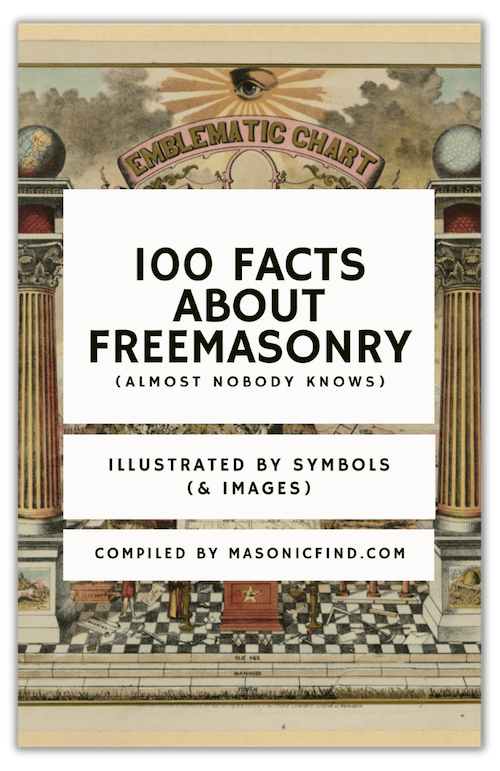This question often revolves around the mind of new candidates, as the term ‘Masonic Tax’ is often discussed in the media.
Today, we will try to explain everything regarding how this entire society works and whether its members are tax-exempt.
Do Freemasons pay taxes? Is Freemasonry tax exempt?
The not-so-simple answer to this; it depends!

Is Your Lodge A Non-Profit?
It depends on the country, it depends on the region, and it depends on the government as well.
Freemasons and their lodges deal with courts on a consistent basis. In some regions, you are utterly tax-free, but recent rulings are compelling the USA and UK Freemasons to pay taxes.
But those rulings are baffling as well and connected to specific cases. For example, Lodges and the members of Freemasonry can’t be considered the same.
If you are a paid member of the lodge, it is highly likely you have to pay the taxes, as the lodge won’t be considered a non-profit organization.
But if your lodge is a completely non-profit organization, and if it is tax-exempt too, in most cases, you don’t have to pay the tax either.
The membership cost of those lodges won’t be considered a tax-deductible expense.
For that reason, on the whole, it is always better to contact your local lodge first.
They are the ones who can explain everything about it. You can’t guess their official status on your own.
Besides, if you already have a professional tax advisor, you have to ask a few important questions from your lodge, so that he can help you protect your wealth and also assist you in expecting and dealing with the new taxes and rulings.
- Do you directly deal with the charity or through the lodge?
- Is this lodge completely tax-free?
- Are the members tax-exempt as well?
- Does it meet all the requirements of a non-profit organization?
- Are the contributions of this lodge are for charitable causes only?
- Does the membership qualify you for a tax deduction?
- Does it provide optional insurance to its members?
- Do you receive any kinds of benefits in return as a member?
Asking these few questions can facilitate your tax advisor in revealing the right information.
In reality, we won’t recommend counting on the words of your Lodge only. Since they deal with the courts as a complete lodge.
On the contrary, you are a member. The rules won’t be the same. Courts or the IRS can see you as a separate person, not a Freemason.
There are some other small factors too that can have an effect on the tax-exempt status of you and your lodge.
If the lodge constantly raises money for charity events, it is imperative to take note of how much money is spent and how much it is made by the event.
In case the money is less and can’t be contributed to the charity, it means it is a failed lodge, which rarely happens.
You perhaps need to revise your decision again.
But if the event has assisted in raising a good amount of money for charity, you must perceive how the lodge is exactly spending it.
Is it for giving charity only or for strengthening the current community?

In addition, as a Freemason, you must know who is actually attending these functions.
Are they Freemasons only or the common community supporters and businessmen?
All these factors play an immensely important role in the court.
If you are a successful businessman, pondering these questions will assist your professional tax advisor to comprehend how the lodge and its activities can affect you and your business.
Now, of course, we understand all these things can be done on an authority level, but asking simple questions like the above can protect you from a lot of headaches.
Are there any recent changes in the tax-exempt status?
Yes, there are but just in a few regions as Freemasonry is a worldwide organization.
One ruling doesn’t concern the entire organization. It is for a few particular lodges only.
In 2014, a UK judge ruled that Freemasonry isn’t a philanthropic society. Their tax break was denied completely.
It happened even after the 82 million pound charity of the United Grand Lodge of England.
This immense level of donation didn’t influence the court or appear as an act of philanthropy either.
In the USA though, most of the lodges are tax exempt. However, it is still pertinent for them to files the proper paperwork to receive the exemption.
For a regular Freemason, this is a relief. But general public opinion is against rich Freemasons who avail the benefits of tax-exempt status.
Many people believe the rich Freemasons, like businessmen, are the biggest tax dodgers. Freemasonry gives them a perfect platform to protect their wealth.
This is perhaps the only reason for them as well to join Freemasonry.
Its membership is a way for them to save their business from taxes and boost their bank balances.
There aren’t any solid pieces of evidence to support these assumptions or reveal what is actually going behind closed doors.
But if you wish to know about the exact tax-exempt status, your local lodge is the only place that can give you the right answers.
If you are a Freemason and if your lodge membership has helped you financially or assisted you in having the tax-exempt status, let us know about it too in the comment section below.

FREE DOWNLOAD: 100 FACTS ABOUT FREEMASONRY (ALMOST NOBODY KNOWS)
Join the 10,000+ Brethren from around the world inside our weekly Masonic newsletter and get our best selling ebook for free (usual value: $20).